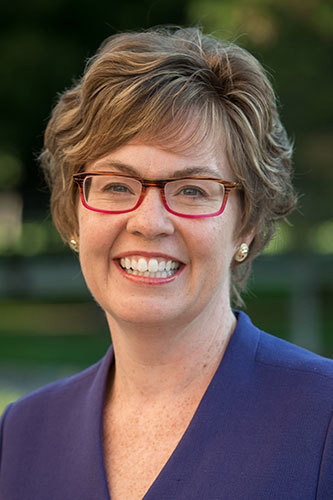 Cummings
Cummings
Cushwa Center director Kathleen Sprows Cummings will present the 2015-16 Dudleian Lecture at Harvard Divinity School next Wednesday, October 28, at 5:15 p.m. Cummings' lecture, titled "American Afterlives: U.S. Nation-Saints and the Second Vatican Council," draws on her research for her forthcoming book, Citizen Saints: Catholics and Canonization in America (UNC Press, 2017).
Respondents to the lecture are Ann Braude, senior lecturer on American religious history and director of the Women's Studies in Religion Program at Harvard Divinity School, and James T. Kloppenberg, Charles Warren Professor of American History at Harvard University. The lecture will be held in the Common Room of the Center for the Study of World Religions, 42 Francis Avenue, Cambridge, Massachusetts.
The Dudleian Lecture is Harvard’s oldest endowed lectureship, established in 1750 by the bequest of Judge Paul Dudley (1675-1751), chief justice of the Superior Court of Massachusetts. In his will, Dudley specified that the annual lecture would address one of four topics on a rotating basis: natural religion, revealed religion, the “Romish” church, and the validity of ordained ministers.
Since its founding 265 years ago, the Dudleian Lecture has had a fascinating relationship to Catholicism. In an article that appeared in the Proceedings of the Massachusetts Historical Society in 1985, the late MIT history professor Pauline Maier—a Harvard graduate—wrote that “Harvard’s Dudleian lectures are for many a monument to American anti-Catholicism.” Dudley wrote in his will that the third in the cycle of four lectures was “for the detecting & convicting & exposing the Idolatry of the Romish church, their tyranny, usurpations, and other crying wickedness in their high places; and finally that the church of Rome is that mystical Babylon, that man of sin, that Apostate church spoken of in the new Testament.”
The first lecturers who were appointed to address this topic would not have disappointed Dudley. For example, Jonathan Mayhew, minister of the Old West Church in Boston, said in his 1765 lecture (titled “Popish Idolatry: A Discourse Delivered in the Chapel of Harvard College,”) that “our controversy with [the Church of Rome] is not merely a religious one… [It involved] a defense of our laws, liberties, and civil rights as men, in opposition to the proud claims and encroachments of ecclesiastical persons, who under the pretext of religion, and saving men’s souls, would engross all power and property to themselves, and reduce us to the most abject slavery.”
But within a few decades, the topic of “popery,” Maier wrote, “became the occasion for embarrassment as much as for reasoned arguments against the Church of Rome. Changes in the Catholic Church and, above all, in its worldly power seemed to make the prescribed topic obsolete.” Throughout the first half of the 19th century, Dudleian lecturers who were charged with the task of lecturing on Catholicism exhibited a variety of sentiments. For example, Maier highlights the 1829 lecturer, Hosea Hildreth, a Congregational pastor from Gloucester, Massachusetts. “[He] simply refused to ‘hold up the Church of Rome to . . . hatred and scorn,’ as Paul Dudley had desired. There was ‘no correspondent feeling in the community at large to make such a course tolerable, and if there were such a feeling, it would, in my opinion, be immoral and unchristian to attempt to gratify it.’"
The Dudleian Lecture was suspended in 1857 to allow the endowment to grow, and it did not resume until 1888—after the First Vatican Council, the U.S. bishops’ Plenary Councils of Baltimore, and additional waves of migration by European Catholics to the United States had all come to pass, causing attitudes toward Catholics in the United States to shift more than ever. In 1890, Harvard president Charles William Eliot invited the Rev. John J. Keane, rector of the new Catholic University in Washington, D.C., to give the lecture, which he did on October 23 of that year.
By the turn of the 20th century, Maier describes the Dudleian lectures “strikingly moderate” and said they “studiously avoided aspersions on the faith or loyalty of American Catholics.” By 1960, “[T]he election of John F. Kennedy, who graduated from Harvard in 1940, exactly 250 years after Paul Dudley, had settled the socio-political issues that once gave life to lectures otherwise devoted to tiresome discussions of transubstantiation and ecclesiastical authority.”
Today Harvard Divinity School lists the endowed lecture in its handbook as “The Dudleian Lecture on Natural Religion, Revealed Religion, or Non-Episcopal Ordination.” Prominent Catholic Dudleian lecturers in recent decades include former Cushwa Center director Scott Appleby (2011); Sister Mary Hughes, former president of the National Conference of Women Religious (2013); Notre Dame philosopher Alasdair MacIntyre (1999); cardinals Walter Kasper of the Pontifical Council for Promoting Christian Unity (2001) and Carlo Martini, archbishop of Milan (1998); and theologians María Pilar Aquino (2009) and Johann Baptist Metz (1968).
Visit hds.harvard.edu/news/public-events-calendar for more information.